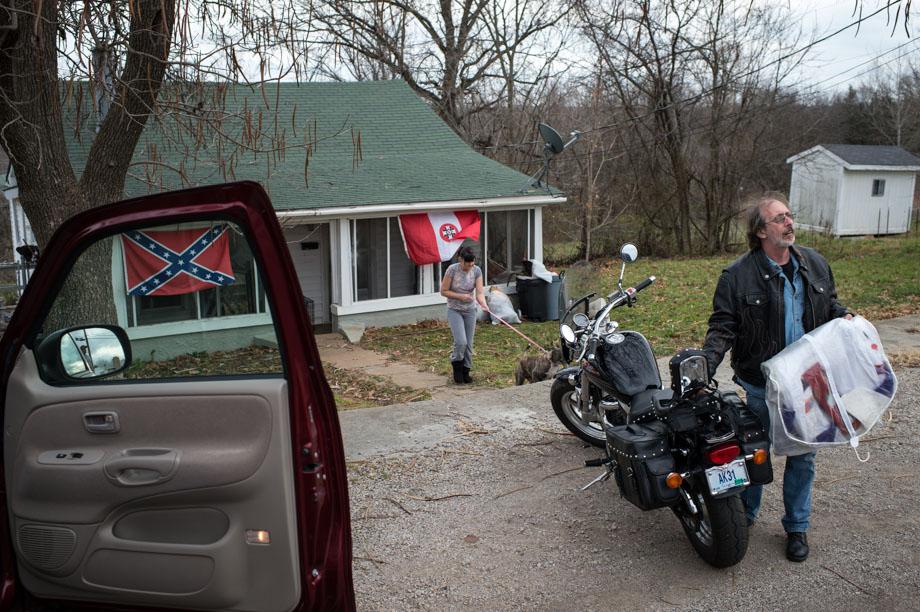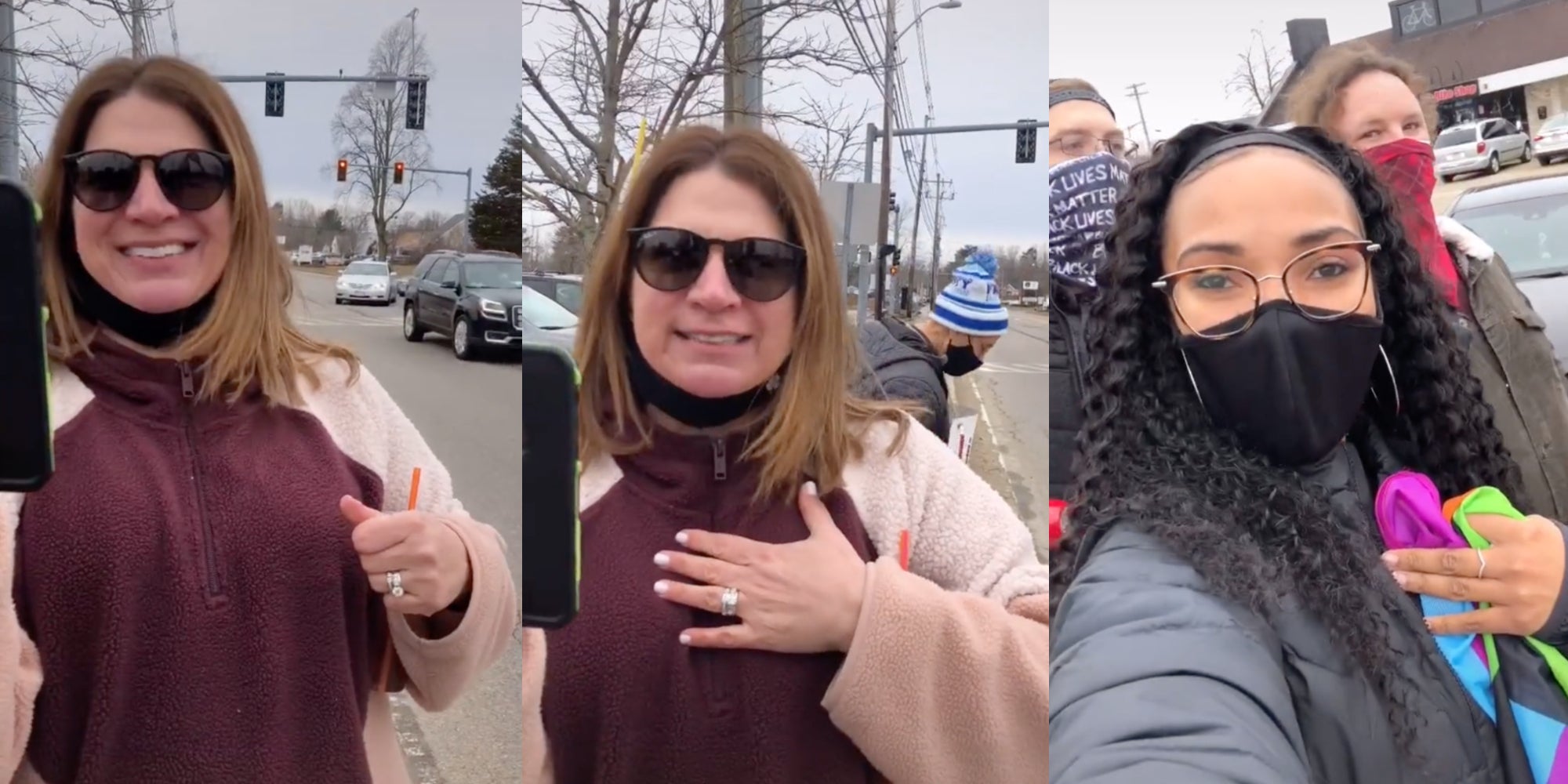Inside The Klan: Photojournalist Anthony Karen's Intimate Access
Can a lens truly unveil the hidden corners of the human experience, even when those corners are shrouded in secrecy and steeped in controversy? Photographer Anthony Karen has dedicated his career to answering this question, fearlessly venturing into the heart of societies often deemed inaccessible, and his work offers a stark, unflinching gaze at the complexities of identity and belief.
Karen's journey began in Haiti, where he immersed himself in the vibrant, yet often misunderstood, world of Vodou rituals. This early exploration of ritual and tradition laid the groundwork for his later, more challenging projects. It was a pivotal experience, one that honed his observational skills and prepared him for the complex dynamics he would encounter in the years to come. His work is not about judging, it is about understanding, as best as one can, the intricacies of the human condition, even when that condition is expressed through ideologies most would find abhorrent.
His methodology, as unconventional as it may seem, often started with reaching out, making initial contact through the most basic of methods: websites, phone calls, and emails. It was a slow, deliberate process, building trust piece by piece. His approach, however, was far from passive. He spent years documenting the Ku Klux Klan, navigating the inherent distrust and hostility, eventually earning the permission to photograph without restriction. This hard-won access is evident in the intimacy of his work, which captures the minutiae of Klan events, rituals, and gatherings. It is a record of how participants express their identity through tradition, symbolism, and deeply held beliefs. The resulting photographs are a powerful observational record.
- Cant Find Results Explore Mayans Mc Mc Cast
- Explore Free Gay Porn Your Guide To Gay Torrent Sites More
| Attribute | Details |
|---|---|
| Full Name | Anthony Karen |
| Profession | Photojournalist |
| Based In | New York |
| Known For | Documenting inaccessible societies, including white supremacist groups and the Ku Klux Klan |
| Early Work | Vodou rituals in Haiti |
| Collaborations | Discovery Channel, Slate.com |
| Notable Projects | Ku Klux Klan project, Westboro Baptist Church |
| Military Service | U.S. Marine Corps |
| Previous Profession | Personal protection industry |
| Start of KKK Project | 2005 |
| Focus of Work | Capturing events, rituals, and gatherings, providing an observational record |
| Approach | Avoids overt interpretation, letting photographs speak for themselves |
| Official Website (Example) | Example Website (Replace with an actual website if available) |
The Ku Klux Klan, a secretive organization established in 1866, remains one of Americas most enigmatic groups. Karens lens has offered a rare glimpse into this world. He did not seek to editorialize or preach; instead, he presented raw observations. The photographs chronicle Klan events, rituals, and gatherings, and Karen was present at a "klan unity cookout" whilst working on his documentary. This includes a cross lighting ceremony in Arkansas which he documented as a novice photojournalist beginning in 2005. The result is a series of images that demand contemplation, forcing viewers to confront uncomfortable realities and question their own preconceived notions. It is a powerful tool for understanding, even if it does not offer simple answers.
The history of the Klan in America is a complex one, interwoven with threads of racial prejudice, social anxieties, and political maneuvering. The organization's tenets, at times, have been a fierce defense of concepts like "free public schools", as seen in a story from the former Methow Valley Journal in 1925. Karen Hesse's Newbery Medal-winning novel, set in a small Vermont town in 1924, explores the devastating impact of the Klan on communities. This highlights how the Klan could divide and destroy the social fabric of a community. This juxtaposition of the historical and the personal underscores the enduring relevance of Karen's work.
One of the key elements of Karens success is his ability to build relationships. Initially, Klan members were guarded, a testament to the nature of the group itself. Karen began by leaving his camera at his side for the majority of initial meetings. He prioritized building trust above all else. Only when trust was established would he begin to photograph without restriction. He attended a Klan unity cookout, but he didn't approach the situation lightly; the decision to document these communities was a careful process. Over time, the camera became less of an intrusion and more of an extension of his presence, allowing him to capture moments of genuine humanity within a context of hate.
- Subaru Commercials Unveiling Ads Actresses More Insights
- Rhett Millers Spouse Family Everything You Need To Know
The impact of Karen's work extends beyond the visual. It has sparked important conversations about free speech, hate speech, and the role of photography in bearing witness to difficult truths. His work provides insights, allowing a view of the complex interplays of power, prejudice, and identity that continue to shape American society. His willingness to engage with these groups, to offer a voice to those often unheard, is a testament to his commitment to photojournalism. The images themselves serve as a challenge to the viewer, forcing them to confront their own biases and consider the nuances of a world far more complex than it often appears.
While Anthony Karen's work is perhaps his most well-known, he has not shied away from other controversial subjects. His photography of the Westboro Baptist Church, known for its extreme anti-LGBTQ+ stance, demonstrates a similar commitment to documenting difficult realities. These projects reveal a consistent theme: the pursuit of understanding through observation, a willingness to engage with those who hold views diametrically opposed to his own, and the understanding that the most important stories are often the most difficult to tell.
The approach that Karen employs to his work is essential in capturing the essence of the subject matter. He presents a neutral view, avoiding overt interpretation. This approach allows the audience to view the events and subjects themselves. It is this approach which builds trust with the subjects he is photographing, and which allows for a deeper understanding of the complexities involved. By allowing the photographs to speak for themselves, he avoids imposing his own biases onto the narrative and gives the viewer space to draw their own conclusions.
The process, however, is not without its challenges. The Ku Klux Klan, being a secretive organization, presents unique hurdles to access. Karens persistence in gaining entry and trust is a testament to his commitment to the project. His journey reflects the dedication and the ethical considerations inherent in documenting sensitive and controversial subjects.
The longevity of the project spanning over two decades also allows for reflection. His work offers a comprehensive record of Klan events, rituals, and gatherings, providing an observational record of how participants express their identity. The project allows for an evolving dialogue, as the viewer is afforded the space to interpret the images and to form their own opinions. The photographs stand as a historical document, reminding us of the power of imagery.
Ultimately, the value of Anthony Karens work lies not just in its photographic prowess, but in its unwavering commitment to truth-telling. His courage to enter often-feared territories, his ability to build rapport, and his dedication to presenting the world as he finds it make his work an essential contribution to the ongoing conversation about identity, prejudice, and the complex landscape of the human experience.
In the realm of photojournalism, where capturing the essence of the human experience is the ultimate goal, Anthony Karen stands as a pivotal figure. His work with the Ku Klux Klan provides a complex study. It is a reminder of the power of the lens to uncover hidden truths and to challenge our perceptions. It is a story about the importance of observation, the significance of the human connection, and the unwavering pursuit of understanding in a world often marked by division.



Detail Author:
- Name : Prof. Ova Schultz I
- Username : casper.cordie
- Email : jennie.mosciski@hotmail.com
- Birthdate : 1987-07-19
- Address : 146 Doris Loaf Fordfurt, SD 48910
- Phone : +1 (980) 272-5441
- Company : Schimmel LLC
- Job : Shipping and Receiving Clerk
- Bio : Consectetur maiores ut consequuntur qui. Quia tempore itaque aliquid autem voluptatem aspernatur ipsum. Est quo molestiae nihil doloremque laboriosam qui minus. Quis dolor qui recusandae.
Socials
facebook:
- url : https://facebook.com/karl2723
- username : karl2723
- bio : Voluptate quos et cumque ipsam molestias.
- followers : 3125
- following : 2734
tiktok:
- url : https://tiktok.com/@senger2020
- username : senger2020
- bio : Aut rerum et quos quod ad laboriosam. Aut sed saepe vel voluptatem repudiandae.
- followers : 738
- following : 1870
linkedin:
- url : https://linkedin.com/in/karl6778
- username : karl6778
- bio : Et unde molestias nesciunt beatae libero.
- followers : 1396
- following : 1734
twitter:
- url : https://twitter.com/sengerk
- username : sengerk
- bio : Corporis qui beatae blanditiis. Et dolores quos magnam. Quisquam fugit quod labore maiores et dolores. Quasi consequuntur dolorem at quia iusto ad.
- followers : 1686
- following : 869